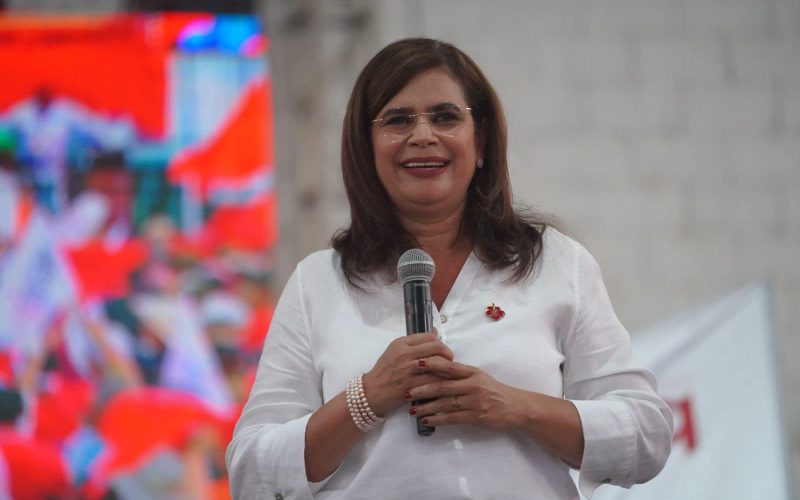LIBRE presidential candidate Rixi Moncada is seeing a notable decrease in voter support with less than 90 days remaining until the general elections on November 30. Having been ahead in the polls recently, the drop in her backing has caused concern within her party and among opposition groups, who are anticipating a potential shift in the electoral contest.
Drop in voter preferences
The latest polls show that Rixi Moncada’s lead has narrowed significantly, putting an end to the initial perception that her candidacy was virtually untouchable. Analysts note that this decline coincides with questions about her economic proposals and concerns about the country’s political and financial stability. The campaign has seen an increase in the intensity of attacks from opposition sectors, contributing to the volatility of the electoral landscape.
LIBRE has started internal conversations about ways to recover voter trust. Sources within the party indicate that the decrease in popularity hasn’t been clearly shown in voting forecasts yet, but they admit there is a “red alert” about potential unexpected outcomes in elections.
Opportunities for the opposition
Although divided, the opposition is keeping a close eye on how voter sentiment is progressing. A drop in backing of Rixi Moncada may create opportunities for forming strategic alliances that might alter the competition’s dynamics. This situation indicates a climate of unpredictability where the actions of various parties could significantly impact the selection of the upcoming president.
Analysts point out that the interaction between the decline in support for LIBRE and the opposition’s ability to consolidate its electoral base will be decisive in the weeks leading up to the vote. The competition is intensifying in a context in which citizen participation and the perception of institutionality are playing a central role in the final outcome.
Political unpredictability and organizational obstacles
Rixi Moncada’s decline in popularity reflects broader tensions in Honduras’ governance and political dynamics. The population remains attentive to campaign movements and signs of economic stability, aware that the election will determine not only the next president but also the direction of public policy in the coming years.
The situation encountered by LIBRE underscores the connection between public trust, institutional robustness, and the presentation of political initiatives. With under three months remaining until the elections, the contest is still undecided, and the strategic choices made by the parties will dictate the ultimate result at the ballot box.




